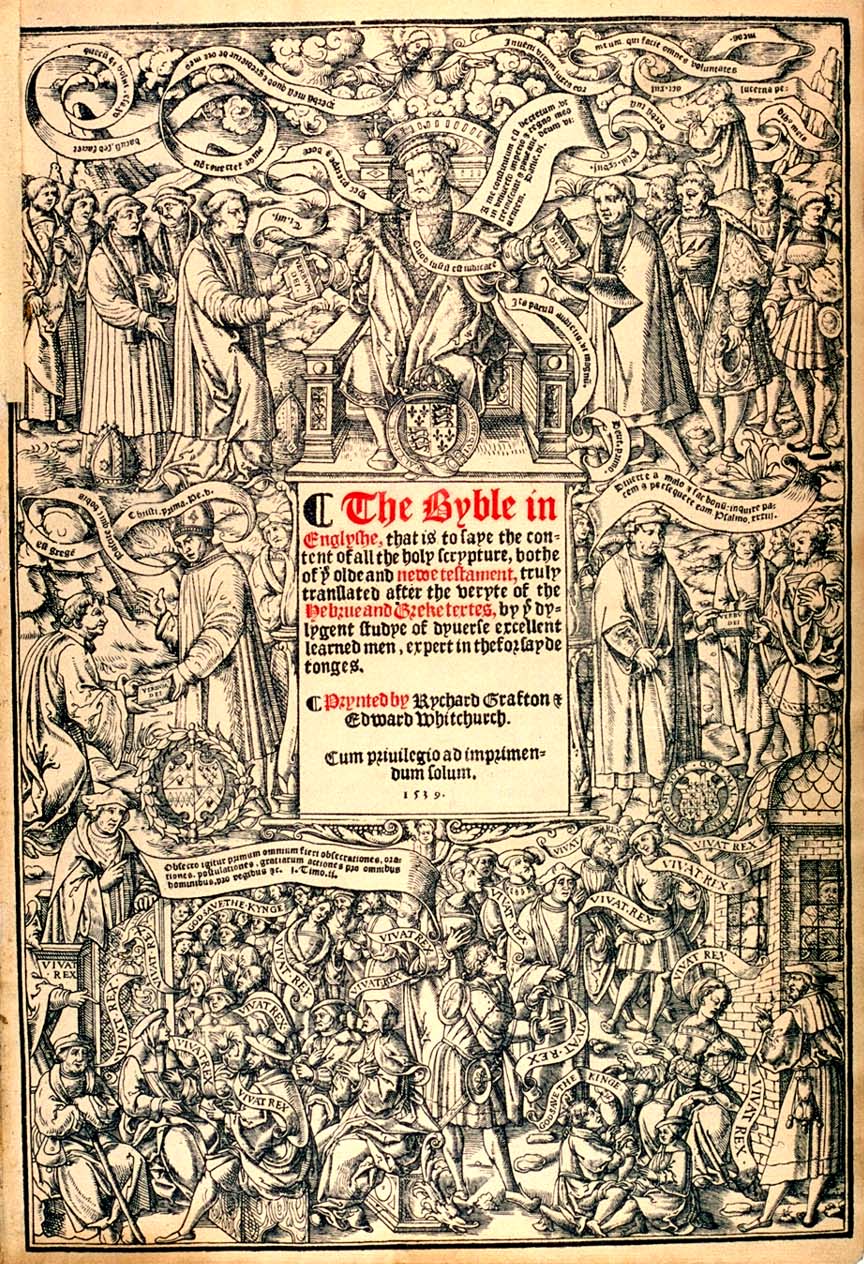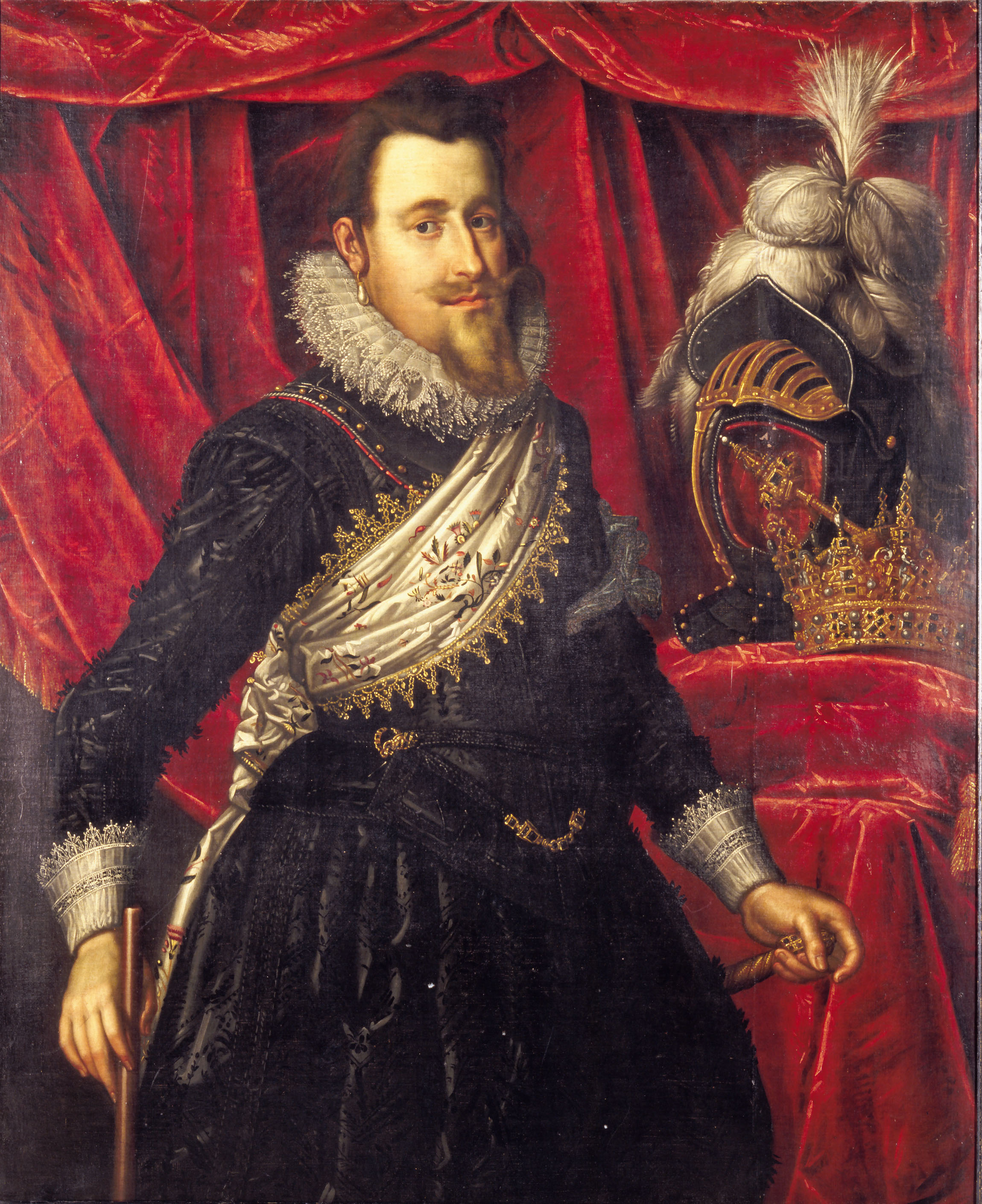|
Richard Jugge
Richard Jugge (died 1577) was an eminent English printer, who kept a shop at the sign of the Bible, at the North door of St Paul's Cathedral, though his residence was in Newgate market, next to Christ Church in London. He is generally credited as the inventor of the footnote. Life It is thought that Richard Jugge was born in Waterbeach in Cambridgeshire and he was educated at Eton and King's College, Cambridge. He was admitted a freeman of the Stationers' Company in 1541 and began to print the New Testament in English, dated 1550. Joseph Ames in ''Typographical Antiquities'' says he was "very curious, in his editions of both the Old and New Testament, bestowing not only a good letter, but many elegant initial letters and fine wooden cuts." He was one of the original members of the Stationers' Company, of which he was chosen Warden in 1560, 1563 and 1566, and Master in 1568, 1569, 1573 and 1574. On the accession of Queen Elizabeth he became Royal Printer conjointly with John Ca ... [...More Info...] [...Related Items...] OR: [Wikipedia] [Google] [Baidu] |
St Paul's Cathedral
St Paul's Cathedral is an Anglican cathedral in London and is the seat of the Bishop of London. The cathedral serves as the mother church of the Diocese of London. It is on Ludgate Hill at the highest point of the City of London and is a Grade I listed building. Its dedication to Paul the Apostle dates back to the original church on this site, founded in AD 604. The present structure, dating from the late 17th century, was designed in the English Baroque style by Sir Christopher Wren. Its construction, completed in Wren's lifetime, was part of a major rebuilding programme in the city after the Great Fire of London. The earlier Gothic cathedral (Old St Paul's Cathedral), largely destroyed in the Great Fire, was a central focus for medieval and early modern London, including Paul's walk and St Paul's Churchyard, being the site of St Paul's Cross. The cathedral is one of the most famous and recognisable sights of London. Its dome, surrounded by the spires of Wren's City chur ... [...More Info...] [...Related Items...] OR: [Wikipedia] [Google] [Baidu] |
Edward Whitchurch
Edward Whitchurch (died 1561) was a London printer and publisher of Protestant works. Whitchurch jointly published the first complete version of the Bible in English in 1539. Other published works included the 1547 ', by William Baldwin, and the ''Paraphrases of Erasmus'' in 1548. After Thomas Cromwell's fall and execution, Whitchurch and Grafton were sent to prison on 8 April 1543 but they were released on 3 May. On 28 January 1543-4, together Grafton and Whitchurch received an exclusive patent for printing church service books and on 28 May 1546 they were also granted an exclusive right to print primers in Latin and English. In 1549 he employed five assistants. Merton Abbey was closed by Henry VIII as part of the Dissolution of the Monasteries and the estate sold. Edward Whitchurch and Lionel Dutchet purchased it, but left for Europe when Queen Mary came to the throne. The site then came into the ownership of the Garth family. [...More Info...] [...Related Items...] OR: [Wikipedia] [Google] [Baidu] |
People From Waterbeach
A person ( : people) is a being that has certain capacities or attributes such as reason, morality, consciousness or self-consciousness, and being a part of a culturally established form of social relations such as kinship, ownership of property, or legal responsibility. The defining features of personhood and, consequently, what makes a person count as a person, differ widely among cultures and contexts. In addition to the question of personhood, of what makes a being count as a person to begin with, there are further questions about personal identity and self: both about what makes any particular person that particular person instead of another, and about what makes a person at one time the same person as they were or will be at another time despite any intervening changes. The plural form "people" is often used to refer to an entire nation or ethnic group (as in "a people"), and this was the original meaning of the word; it subsequently acquired its use as a plural form of per ... [...More Info...] [...Related Items...] OR: [Wikipedia] [Google] [Baidu] |
Alumni Of King's College, Cambridge
Alumni (singular: alumnus (masculine) or alumna (feminine)) are former students of a school, college, or university who have either attended or graduated in some fashion from the institution. The feminine plural alumnae is sometimes used for groups of women. The word is Latin and means "one who is being (or has been) nourished". The term is not synonymous with "graduate"; one can be an alumnus without graduating (Burt Reynolds, alumnus but not graduate of Florida State, is an example). The term is sometimes used to refer to a former employee or member of an organization, contributor, or inmate. Etymology The Latin noun ''alumnus'' means "foster son" or "pupil". It is derived from PIE ''*h₂el-'' (grow, nourish), and it is a variant of the Latin verb ''alere'' "to nourish".Merriam-Webster: alumnus .. Separate, but from the s ... [...More Info...] [...Related Items...] OR: [Wikipedia] [Google] [Baidu] |
People Educated At Eton College
A person ( : people) is a being that has certain capacities or attributes such as reason, morality, consciousness or self-consciousness, and being a part of a culturally established form of social relations such as kinship, ownership of property, or legal responsibility. The defining features of personhood and, consequently, what makes a person count as a person, differ widely among cultures and contexts. In addition to the question of personhood, of what makes a being count as a person to begin with, there are further questions about personal identity and self: both about what makes any particular person that particular person instead of another, and about what makes a person at one time the same person as they were or will be at another time despite any intervening changes. The plural form "people" is often used to refer to an entire nation or ethnic group (as in "a people"), and this was the original meaning of the word; it subsequently acquired its use as a plural form of per ... [...More Info...] [...Related Items...] OR: [Wikipedia] [Google] [Baidu] |
English Printers
English usually refers to: * English language * English people English may also refer to: Peoples, culture, and language * ''English'', an adjective for something of, from, or related to England ** English national identity, an identity and common culture ** English language in England, a variant of the English language spoken in England * English languages (other) * English studies, the study of English language and literature * ''English'', an Amish term for non-Amish, regardless of ethnicity Individuals * English (surname), a list of notable people with the surname ''English'' * People with the given name ** English McConnell (1882–1928), Irish footballer ** English Fisher (1928–2011), American boxing coach ** English Gardner (b. 1992), American track and field sprinter Places United States * English, Indiana, a town * English, Kentucky, an unincorporated community * English, Brazoria County, Texas, an unincorporated community * Eng ... [...More Info...] [...Related Items...] OR: [Wikipedia] [Google] [Baidu] |
1577 Deaths
__NOTOC__ Year 1577 ( MDLXXVII) was a common year starting on Tuesday (link will display the full calendar) of the Julian calendar. Events January–June * January 9 – The second Union of Brussels is formed, first without the Protestant counties of Holland and Zeeland (which is accepted by King Philip II of Spain), later with the Protestants, which means open rebellion of the whole of the Netherlands. * March 17 – The Cathay Company is formed, to send Martin Frobisher back to the New World for more gold. * May 28 – The ''Bergen Book'', better known as the ''Solid Declaration'' of the Formula of Concord, one of the Lutheran confessional writings, is published. The earlier version, known as the ''Torgau Book'' ( 1576), had been condensed into an ''Epitome''; both documents are part of the 1580 ''Book of Concord''. July–December * July 9 – Ludvig Munk is appointed Governor-General of Norway. * September 17 – The Treaty of Bergerac ... [...More Info...] [...Related Items...] OR: [Wikipedia] [Google] [Baidu] |
Dictionary Of National Biography
The ''Dictionary of National Biography'' (''DNB'') is a standard work of reference on notable figures from British history, published since 1885. The updated ''Oxford Dictionary of National Biography'' (''ODNB'') was published on 23 September 2004 in 60 volumes and online, with 50,113 biographical articles covering 54,922 lives. First series Hoping to emulate national biographical collections published elsewhere in Europe, such as the ''Allgemeine Deutsche Biographie'' (1875), in 1882 the publisher George Smith (1824–1901), of Smith, Elder & Co., planned a universal dictionary that would include biographical entries on individuals from world history. He approached Leslie Stephen, then editor of the ''Cornhill Magazine'', owned by Smith, to become the editor. Stephen persuaded Smith that the work should focus only on subjects from the United Kingdom and its present and former colonies. An early working title was the ''Biographia Britannica'', the name of an earlier eighteen ... [...More Info...] [...Related Items...] OR: [Wikipedia] [Google] [Baidu] |
John Jugge
John Jugge (died 1588) was an English member of the Stationers' Company, and the son of Richard Jugge. Contrary to what is said in the ''Dictionary of National Biography The ''Dictionary of National Biography'' (''DNB'') is a standard work of reference on notable figures from British history, published since 1885. The updated ''Oxford Dictionary of National Biography'' (''ODNB'') was published on 23 September ...'', he did not take over Richard's business, such printing as he did being a sideline. References 1588 deaths English printers 16th-century English businesspeople Year of birth missing {{England-bio-stub ... [...More Info...] [...Related Items...] OR: [Wikipedia] [Google] [Baidu] |
Bookbinding
Bookbinding is the process of physically assembling a book of codex format from an ordered stack of ''signatures'', sheets of paper folded together into sections that are bound, along one edge, with a thick needle and strong thread. Cheaper, but less permanent, methods for binding books include loose-leaf rings, individual screw-posts (binding posts), twin loop spine coils, plastic spiral coils, and plastic spine combs. For protection, the bound stack of signatures is wrapped in a flexible cover or is attached to stiffened boards. Finally, an attractive cover is placed onto the boards, which includes the publisher's information, and artistic decorations. The trade of binding books is in two parts; (i) stationery binding (vellum binding) for books intended for handwritten entries, such as accounting ledgers, business journals, blank-page books, and guest logbooks, and notebooks, manifold books, day books, diaries, and portfolios. (ii) letterpress printing and binding deals with ... [...More Info...] [...Related Items...] OR: [Wikipedia] [Google] [Baidu] |
Quarto
Quarto (abbreviated Qto, 4to or 4º) is the format of a book or pamphlet produced from full sheets printed with eight pages of text, four to a side, then folded twice to produce four leaves. The leaves are then trimmed along the folds to produce eight book pages. Each printed page presents as one-fourth size of the full sheet. The earliest known European printed book is a quarto, the '' Sibyllenbuch'', believed to have been printed by Johannes Gutenberg in 1452–53, before the Gutenberg Bible, surviving only as a fragment. Quarto is also used as a general description of size of books that are about 12 inches (30 cm) tall, and as such does not necessarily indicate the actual printing format of the books, which may even be unknown as is the case for many modern books. These terms are discussed in greater detail in book sizes. Quarto as format A quarto (from Latin , ablative form of , fourth) is a book or pamphlet made up of one or more full sheets of paper on which 8 pages of t ... [...More Info...] [...Related Items...] OR: [Wikipedia] [Google] [Baidu] |


_1938.jpg)


